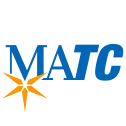What do they do?
Install or repair solar energy systems designed to collect, store, and circulate solar-heated water for residential, commercial or industrial use.
Also known as:
Installer, Solar Energy Technician, Solar Hot Water Installer (SHW Installer), Solar Installer, Solar Maintenance Technician, Solar System Installer, Solar Technician, Solar Thermal Installer
-
2.7%
Change
Ranks #48 in job growth rate1,540Job Openings
Ranks #8 in net job growth
Looking for colleges that offer a specific major? Use the College Match Tool to find your best-matched schools and discover your estimated Net Price!
- High school diploma equivalent (46%)
- Some college, no degree (25%)
- Less than high school diploma (15%)
- Associate's degree (8%)
- Bachelor's degree (5%)
- Master's degree (1%)
- Doctorate or Professional Degree (<1%)
People in this career often have these skills:
- Installation - Installing equipment, machines, wiring, or programs to meet specifications.
- Reading Comprehension - Understanding written sentences and paragraphs in work-related documents.
- Quality Control Analysis - Conducting tests and inspections of products, services, or processes to evaluate quality or performance.
People in this career often know a lot about:
- Mechanical - Knowledge of machines and tools, including their designs, uses, repair, and maintenance.
- Building and Construction - Knowledge of materials, methods, and the tools involved in the construction or repair of houses, buildings, or other structures such as highways and roads.
- Customer and Personal Service - Knowledge of principles and processes for providing customer and personal services. This includes customer needs assessment, meeting quality standards for services, and evaluation of customer satisfaction.
- English Language - Knowledge of the structure and content of the English language including the meaning and spelling of words, rules of composition, and grammar.
- Engineering and Technology - Knowledge of the practical application of engineering science and technology. This includes applying principles, techniques, procedures, and equipment to the design and production of various goods and services.
- Education and Training - Knowledge of principles and methods for curriculum and training design, teaching and instruction for individuals and groups, and the measurement of training effects.
- Design - Knowledge of design techniques, tools, and principles involved in production of precision technical plans, blueprints, drawings, and models.
- Public Safety and Security - Knowledge of relevant equipment, policies, procedures, and strategies to promote effective local, state, or national security operations for the protection of people, data, property, and institutions.
- Computers and Electronics - Knowledge of circuit boards, processors, chips, electronic equipment, and computer hardware and software, including applications and programming.
- Production and Processing - Knowledge of raw materials, production processes, quality control, costs, and other techniques for maximizing the effective manufacture and distribution of goods.
- Administration and Management - Knowledge of business and management principles involved in strategic planning, resource allocation, human resources modeling, leadership technique, production methods, and coordination of people and resources.
People in this career often have talent in:
- Oral Comprehension - The ability to listen to and understand information and ideas presented through spoken words and sentences.
- Near Vision - The ability to see details at close range (within a few feet of the observer).
- Speech Recognition - The ability to identify and understand the speech of another person.
- Written Comprehension - The ability to read and understand information and ideas presented in writing.
- Oral Expression - The ability to communicate information and ideas in speaking so others will understand.
- Problem Sensitivity - The ability to tell when something is wrong or is likely to go wrong. It does not involve solving the problem, only recognizing that there is a problem.
- Extent Flexibility - The ability to bend, stretch, twist, or reach with your body, arms, and/or legs.
People in this career often do these activities:
- Inspect plumbing systems or fixtures.
- Inspect industrial or commercial equipment to ensure proper operation.
- Test electrical equipment or systems to ensure proper functioning.
- Apply sealants or other protective coatings.
- Install solar energy systems.
- Install plumbing or piping.
- Communicate with clients about products, procedures, and policies.
- Pour materials into or on designated areas.
- Determine appropriate locations for operations or installations.
- Maintain mechanical equipment.
- Apply identification labels or tags.
- Apply adhesives to construction materials.
- Install insulation in equipment or structures.
- Cut carpet, vinyl or other flexible materials.
- Install gauges or controls.
- Assess locations for potential green technology installations.
This page includes data from:

 Occupation statistics: USDOL U.S. Bureau of Labor Statistics Occupational Employment Statistics
Occupation statistics: USDOL U.S. Bureau of Labor Statistics Occupational Employment Statistics
 Videos: CareerOneStop, USDOL/ETA and the Minnesota Department of Employment & Economic Development
Videos: CareerOneStop, USDOL/ETA and the Minnesota Department of Employment & Economic Development


















